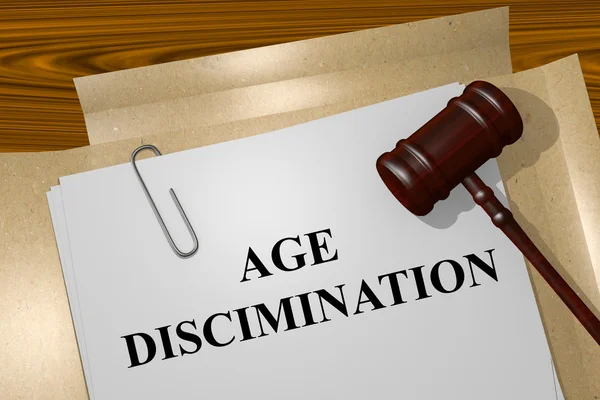When you’re faced with a personal injury situation, choosing the right attorney can feel overwhelming. You need to evaluate your specific needs, the complexity of your case, and what outcomes you hope to achieve. By researching potential attorneys and reviewing their qualifications, experience, and communication style, you can narrow down your options. But there’s more to this process than just credentials; understanding fees and gathering client testimonials are vital steps too. So, how do you guarantee you make the best choice for your circumstances? Let’s explore the key factors that can guide your decision.
Understand Your Needs
When it comes to selecting a personal injury attorney, your unique situation plays a crucial role. Start by identifying your personal goals for the case. Are you seeking maximum compensation, a quick settlement, or perhaps a chance to hold the responsible party accountable? Understanding these objectives helps narrow your choices. For expert guidance, consider consulting Alpizar Law, known for their dedication to personal injury cases.
Next, consider your case expectations. Do you anticipate a lengthy trial, or do you think a negotiation will suffice? Knowing the complexity of your case can guide you in finding an attorney with the right experience and approach.
Research Potential Attorneys
When researching potential attorneys, start by checking their credentials and experience to guarantee they’re qualified to handle your case.
It’s also important to evaluate their areas of specialization, as some may focus more on certain types of personal injury claims.
Finally, assess their communication style to make sure you’ll feel comfortable discussing your case with them.
Check Credentials and Experience
Before you commit to a personal injury attorney, it’s crucial to check their credentials and experience. Start with credentials verification by looking into their educational background and any licenses they hold. Confirm they’re in good standing with the state bar association.
Next, conduct an experience assessment; find out how long they’ve practiced personal injury law and their success rate in cases similar to yours. Don’t hesitate to ask about their track record during your initial consultations.
An attorney’s past performance can provide insight into their capabilities and approach to cases. By thoroughly evaluating these aspects, you’ll feel more confident in your choice and better prepared for your legal journey.
Evaluate Specialization Areas
After you’ve checked an attorney’s credentials and experience, the next step is to evaluate their specialization areas.
Look for attorneys who focus on personal injury law, as specialization relevance can greatly impact your case. Different attorneys may handle various litigation types, such as car accidents, medical malpractice, or workplace injuries.
By selecting someone with expertise in the specific area relevant to your situation, you enhance the likelihood of a successful outcome.
Don’t hesitate to ask potential attorneys about their past cases and their success rates in those specific fields.
Assess Communication Style
Effective communication is essential in any attorney-client relationship, so evaluating an attorney’s communication style should be a top priority.
Pay attention to their listening skills during your initial interactions. A good attorney will actively listen to your concerns and ask relevant questions, showing they understand your situation.
Additionally, consider their response time. If they promptly reply to your inquiries, it indicates they value your case and are committed to keeping you informed.
Schedule consultations with potential attorneys to gauge how well they communicate. Ask about their preferred methods of contact and availability.
Finding an attorney who communicates clearly and efficiently can make a significant difference in your experience and your case’s outcome.
Don’t underestimate the importance of this aspect!
Check Qualifications and Experience
When choosing a personal injury attorney, it’s essential to verify their educational background and professional qualifications.
You should also assess their experience with cases similar to yours to guarantee they’ve the right skills to represent you effectively.
This step can greatly impact the outcome of your case, so don’t overlook it.
Verify Educational Background
While many factors influence your choice of a personal injury attorney, verifying their educational background is essential. Start by checking if they graduated from reputable educational institutions. A strong academic foundation often reflects their commitment to the field and understanding of the law.
Next, conduct degree verification to guarantee they hold the appropriate degrees and credentials. This step helps you avoid potential pitfalls, as some attorneys may exaggerate their qualifications.
Additionally, you can research any honors or achievements they received during their studies, as these accolades might indicate a higher level of expertise.
Ultimately, confirming their educational background gives you confidence in their ability to handle your case effectively and advocate for your rights.
Assess Case Handling Experience
After verifying an attorney’s educational background, the next step is to assess their case handling experience. You want to know how many cases similar to yours the attorney has successfully managed.
Look for their track record of case outcomes—positive results indicate a solid grasp of personal injury law. Additionally, inquire about their trial experience. Not all cases settle; having an attorney who’s comfortable in court can make a significant difference.
Ask them about their success rate in trials and their approach to negotiation. This information will help you gauge their ability to advocate effectively for your interests.
Evaluate Communication Skills
Evaluating an attorney’s communication skills is essential for your case’s success. You want someone who practices active listening, ensuring they understand your concerns and needs.
Pay attention to how they respond during your initial consultation. Are they engaged and asking relevant questions? Clear explanations are vital; your attorney should be able to break down complex legal jargon into understandable terms. If they can’t simplify the process for you, it might signal potential issues down the line.
Notice their responsiveness as well—do they follow up promptly, or do you feel ignored? Effective communication fosters trust and collaboration, making it easier for you to work together towards a favorable outcome.
Choose someone who values clear, open dialogue as much as you do.
Review Client Testimonials
Client testimonials offer valuable insights into an attorney’s track record and the experiences of those who’ve worked with them. By reviewing client feedback, you can gauge how well the attorney handles cases similar to yours.
Look for patterns in the comments—are clients satisfied with the outcome? Did they feel supported throughout the process?
Conduct a reputation analysis by checking multiple sources, such as online reviews, legal directories, and social media. This approach gives you a well-rounded view of the attorney’s strengths and weaknesses.
Don’t hesitate to reach out to past clients for their firsthand experiences. Ultimately, understanding the sentiments of previous clients can help you make a more informed decision when choosing the right personal injury attorney for your case.
Discuss Fees and Payment
Understanding the fees and payment structures of a personal injury attorney is essential for your case. Most attorneys work on a contingency fee basis, meaning they only get paid if you win. This arrangement can be beneficial, as it aligns their success with yours.
Typically, the attorney will take a percentage of your settlement, so discuss this percentage upfront to avoid surprises.
On the other hand, some attorneys charge hourly rates. This method can be riskier for you, as costs accumulate regardless of the case outcome.
Make sure to clarify how they bill their time and any potential additional fees. By understanding these payment structures, you can choose an attorney that fits your financial situation and legal needs.
Schedule Consultations
Once you’ve narrowed down your options, scheduling consultations with potential personal injury attorneys is an important next step.
This gives you the opportunity to assess their expertise and how they can help your case. Prepare a list of consultation questions to guarantee you cover critical topics, such as their experience with similar cases and their approach to your situation.
Also, inquire about attorney availability; you want someone who’s accessible and responsive throughout your case.
During the consultation, pay attention to how comfortable you feel discussing your case and whether the attorney listens to your concerns.
This initial meeting is crucial in determining if they’re the right fit for you. Don’t hesitate to trust your instincts!




